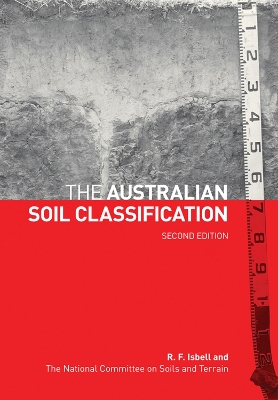CSIRO Land & Water
1 total work
The Australian Soil Classification
by The National Committee on Soil and Terrain and R. F. Isbell
Published 1 January 1996
The Australian Soil Classification provides a framework for organising knowledge about Australian soils. It provides a means of communication among scientists and land managers. It is a general-purpose scheme that allocates soils to classes via a key. Classification is a basic requirement of all science and needs to be periodically revised as knowledge increases.
This Second Edition includes updates from a working group of the National Committee on Soils and Terrain (NCST), especially in regards to new knowledge about acid sulfate soils (sulfidic materials). Modifications include expanding the classification to incorporate different kinds of sulfidic materials, the introduction of subaqueous soils as well as new Vertosol subgroups, new Hydrosol family criteria and the consistent use of the term reticulate. All soil orders except for Ferrosols and Sodosols are affected by the changes.
This Second Edition includes updates from a working group of the National Committee on Soils and Terrain (NCST), especially in regards to new knowledge about acid sulfate soils (sulfidic materials). Modifications include expanding the classification to incorporate different kinds of sulfidic materials, the introduction of subaqueous soils as well as new Vertosol subgroups, new Hydrosol family criteria and the consistent use of the term reticulate. All soil orders except for Ferrosols and Sodosols are affected by the changes.
